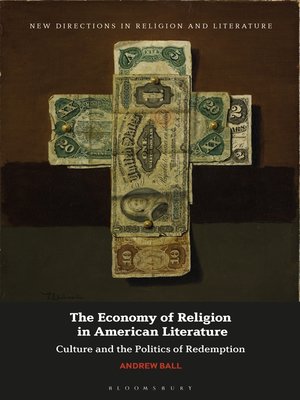The Economy of Religion in American Literature
ebook ∣ Culture and the Politics of Redemption · New Directions in Religion and Literature
By Andrew Ball

Sign up to save your library
With an OverDrive account, you can save your favorite libraries for at-a-glance information about availability. Find out more about OverDrive accounts.
Find this title in Libby, the library reading app by OverDrive.



Search for a digital library with this title
Title found at these libraries:
| Library Name | Distance |
|---|---|
| Loading... |
Examining how economic change influences religion, and the way literature mediates that influence, this book provides a thorough reassessment of modern American culture. Focusing on the period 1840-1940, the author shows how the development of capitalism reshaped American Protestantism and addresses the necessary role of literature in that process.
Arguing that the "spirit of capitalism" was not fostered by traditional Puritanism, Ball explores the ways that Christianity was transformed by the market and industrial revolutions. This book refutes the long-held secularization thesis by showing that modernity was a time when new forms of the sacred proliferated, and that this religious flourishing was essential to the production of American culture.
Ball draws from the work of Émile Durkheim and cultural sociology to interpret modern social upheavals like religious awakenings, revivalism, and the labor movement. Examining work from writers like Rebecca Harding Davis, Jack London, and Countee Cullen, he shows how concepts of salvation fundamentally intersect with matters of race, gender, and class, and proposes a theory that explains the enchantment of modern American society.
Arguing that the "spirit of capitalism" was not fostered by traditional Puritanism, Ball explores the ways that Christianity was transformed by the market and industrial revolutions. This book refutes the long-held secularization thesis by showing that modernity was a time when new forms of the sacred proliferated, and that this religious flourishing was essential to the production of American culture.
Ball draws from the work of Émile Durkheim and cultural sociology to interpret modern social upheavals like religious awakenings, revivalism, and the labor movement. Examining work from writers like Rebecca Harding Davis, Jack London, and Countee Cullen, he shows how concepts of salvation fundamentally intersect with matters of race, gender, and class, and proposes a theory that explains the enchantment of modern American society.







